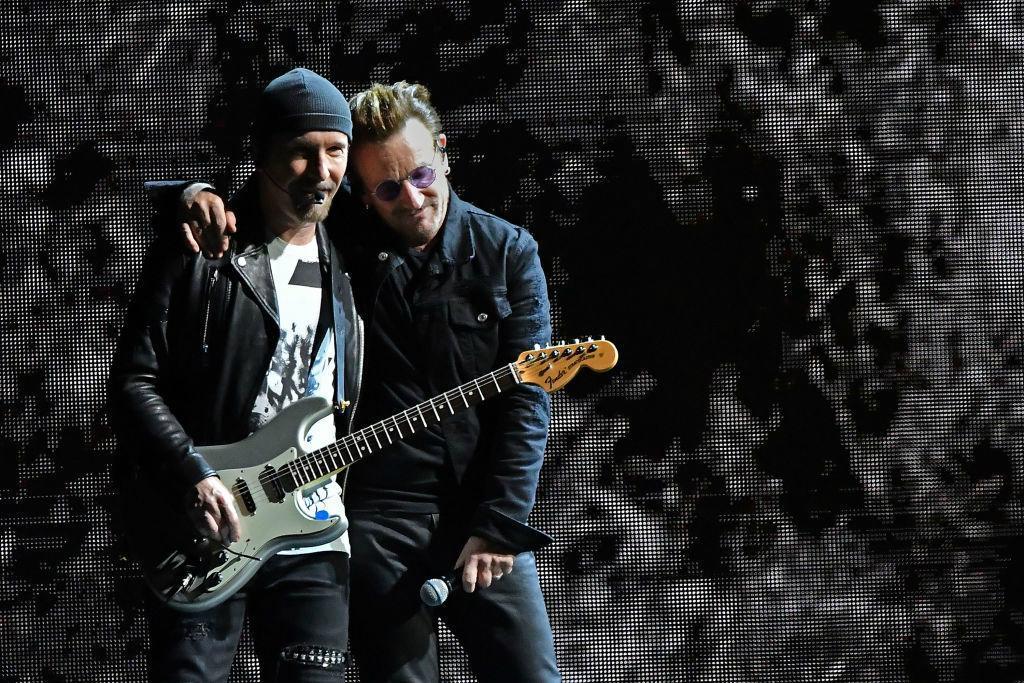U2, Twickenham Stadium, review: The Joshua Tree is unfurled in its full glory
Performing their fifth album proves a timely reminder of just how vital, socially conscious and refreshing U2 were back in 1987

Your support helps us to tell the story
From reproductive rights to climate change to Big Tech, The Independent is on the ground when the story is developing. Whether it's investigating the financials of Elon Musk's pro-Trump PAC or producing our latest documentary, 'The A Word', which shines a light on the American women fighting for reproductive rights, we know how important it is to parse out the facts from the messaging.
At such a critical moment in US history, we need reporters on the ground. Your donation allows us to keep sending journalists to speak to both sides of the story.
The Independent is trusted by Americans across the entire political spectrum. And unlike many other quality news outlets, we choose not to lock Americans out of our reporting and analysis with paywalls. We believe quality journalism should be available to everyone, paid for by those who can afford it.
Your support makes all the difference."Thank you for letting us back into your lives, we're so grateful," maintains 57-year-old frontman Bono, who is in uncharacteristically humble and self-deprecating form ("I still can't play the harmonica," he admits before "In God's Country") during this deeply affecting and hugely enjoyable performance. It begins with the Dublin quartet huddled at the front of the vast stage for thrilling renditions of "Sunday Bloody Sunday", "New Year's Day", "Bad", which channels their memorable Live Aid performance and ends with Bono adding a snippet of Bowie's "Heroes", and "Pride". This astounding four-song salvo is delivered, refreshingly, without resorting to flashy visuals, gimmicks or special effects. However, when the inevitable visuals do come they arrive on a curved 200ft screen and are tastefully and exquisitely directed by Anton Corbijn, the original photographer for 1987's The Joshua Tree front sleeve.
The Joshua Tree, U2's fifth record, which was tailored to the American market and made at the height of Reaganomics (it feels particularly relevant in the world of Trump), is then unfurled in its full glory. The album is a timely reminder of just how vital, socially conscious and refreshing U2 were back in 1987, which was ostensibly an annus horribilis for UK chart music. The first three tracks – "Where the Streets Have No Name", "I Still Haven't Found What I'm Looking For" and "With or Without You" – on their most consistently satisfying record (which sold a staggering 25 million copies in a pre-digital age) are arguably the finest first three songs on any rock album.
"I Still Haven't Found What I'm Looking For" is a particular highlight here, in front of a packed, pumped-up, fist-pumping crowd. However, listening to very rare outings for "Running to Stand Still", "and "Red Hill Mining Town" – where Bono admits that "they never knew how to play that song" – and "Trip Through Your Wires" are equally electrifying.
After the giddy highs of The Joshua Tree it's back to familiar territory for recent U2 gigs, with pop hits "Vertigo", "Beautiful Day" and "Elevation" receiving an airing in front of hyperactive visuals. It's with some relief that "One" arrives at the end, a touching rock song more fitting for this rousing occasion.
I've seen U2 live many times and I've never seen them give so much pleasure to so many people. There were tears. Mine. And they're a band that is indefatigably on the side of the angels, as evidenced by dedicating "Ultraviolet" to murdered Labour MP Jo Cox and allowing Noel Gallagher to end their blistering set with a poignant and stirring "Don't Look Back in Anger", dedicated to Manchester.
A triumphant experience.
Join our commenting forum
Join thought-provoking conversations, follow other Independent readers and see their replies
Comments